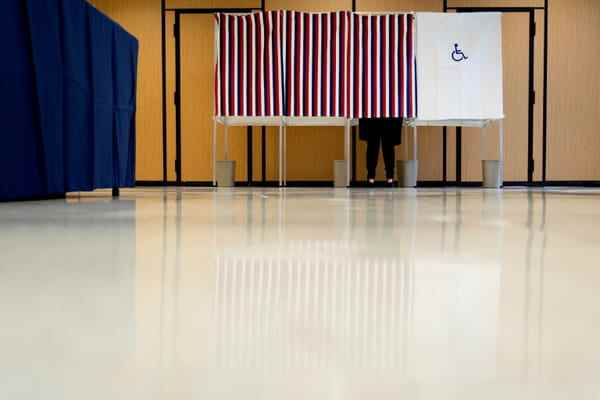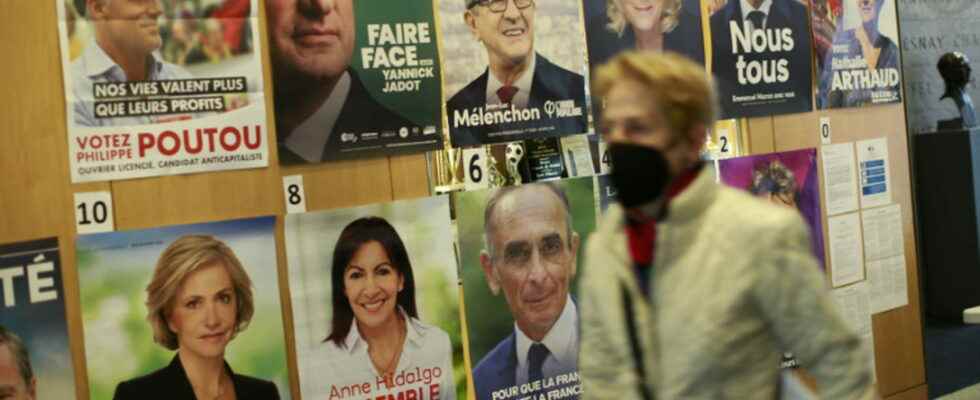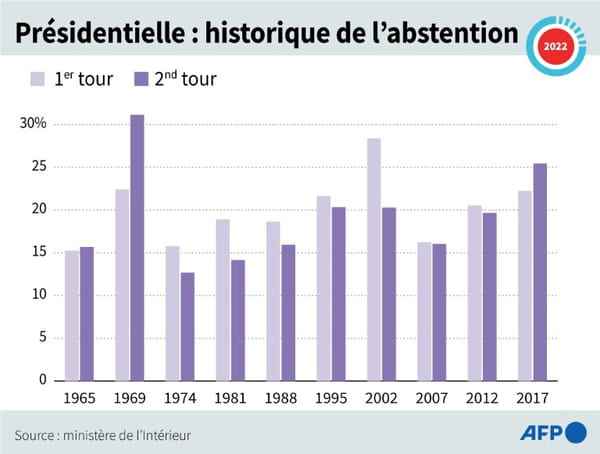It’s time for choice for 48.7 million voters summoned to the first round of the presidential election on Sunday, after months of a strange campaign, which will not have been passionate and which raises fears of strong abstention.
After part of the overseas Saturday, the opening of the polls must take place at 08:00 in mainland France. The verdict of the polls is expected at 8:00 p.m., with the first estimates from polling institutes.
Until then, the cameras will capture the votes of the candidates in their respective strongholds, in the silence to which the law has compelled them since Friday evening. Most will do their civic duty early in the morning before returning to their campaign headquarters in Paris.
Centrist outgoing Emmanuel Macron and far-right candidate Marine Le Pen are, as five years ago, the favorites to qualify for the second round on April 24, with the Insoumis Jean-Luc Mélenchon in ambush in the role of the 3rd man.
The latest surveys published during the week promised between 25 and 28% of the vote for Mr. Macron, 21.5 to 24% for Ms. Le Pen, and 16 to 18% for Mr. Mélenchon – the latter two having been in continuous progression at the end of the campaign.
– Voters more undecided than ever –
The ten other contenders seem relegated, and in particular the candidates of the two parties who have dominated political life in France for decades, Valérie Pécresse (Les Républicains) and Anne Hidalgo (Socialist Party).
The uncertainty remains in particular because, warns the political scientist Pascal Perrineau, “it is the first election which reaches such a rate of people who are undecided, who have changed their opinion, about one in two French people”.
Political scientists do not exclude, thus, that a surprise could shake up this trifecta given by the polls.
Many analysts also fear that the abstention record of 2002 (28.4%), the highest level ever recorded for a first round of a presidential election, could be beaten. With 22.2% abstention, 2017 was already not a good vintage.
In New Caledonia, which started voting on Saturday, in the heat wave, the turnout at noon peaked at 17.59% against 19.86% 5 years ago. And in Polynesia, it was 12.34% at noon against 22.24% at the same time in 2017, according to estimates by the High Commission.
“It’s important to vote, it’s the moment when you choose whether you want good or bad, it’s still the president who manages your life”, testified Annette Tehariki, a 57-year-old Polynesian who came to vote. in a wheelchair.
Even before the outcome of the first round, several candidates projected themselves in the perspective of a Macron-Le Pen duel in the second round, revealing cracks in the “republican front” facing the far right – a “front” that Emmanuel Macron had not invoked in 2017.
Begun as the country suffered a wave of Covid-19, the campaign continued against the agonizing backdrop of Russia’s invasion of Ukraine, immediately followed by a sharp rise in the prices of certain products, especially energy.
– Small duels rather than a big debate –
At no time was a major theme for the future discussed by all the candidates.
“We have a sort of archipelization of the debates with small duels”, notes the pollster Frédéric Dabi (Ifp), in particular between the far-right polemicist Eric Zemmour and the candidate LR Valérie Pécresse or between the Insoumis Jean-Luc Mélenchon and the other candidates from a fragmented left, the ecologist Yannick Jadot, the communist Fabien Roussel, the socialist Anne Hidalgo or the Trotskyists Philippe Poutou and Nathalie Arthaud.
The sovereignist Nicolas Dupont-Aignan and the Béarnais deputy Jean Lassalle regretted a campaign without debate.

Voters vote in the presidential election, at the French Embassy in Washington, April 9, 2022
© AFP – Stefani Reynolds
To ward off indecision and abstention, the candidates multiplied the last week of the campaign: last major meetings, media exposure, final field trips.
The outgoing president, who has always remained at the top of the polls, entered the campaign late, prevented first by the health crisis, then by the invasion of Ukraine by Russia. But he too gave a boost at the end of the week, with several interviews, even making a short impromptu visit to a market in Neuilly-sur-Seine on Friday.
Marine Le Pen, who made her last trip to Aude on Friday, started an upward momentum after being worried by her far-right rival Eric Zemmour, consolidating in second place and then gradually closing the gap with Emmanuel Macron .
She also led an atypical campaign, striving to smooth her image and putting in the background, in her speeches, her proposals on immigration and on Europe, which nevertheless remain as radical as in the past.
All rights of reproduction and representation reserved. © (2022) Agence France-Presse

